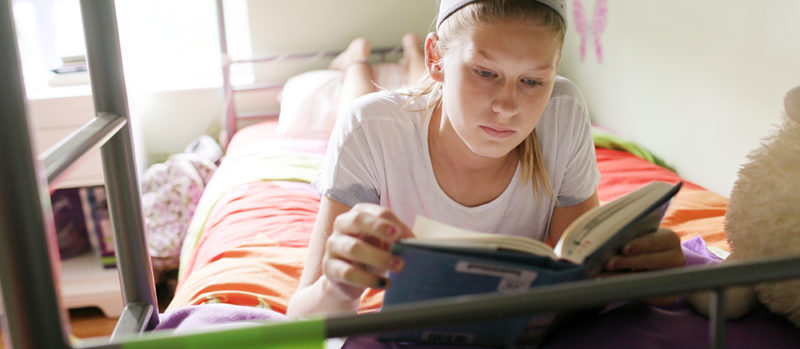Kids will be heading back to school before we know it! Whether your child is excited about the new year or dreading it, this period of time is always an adjustment.
So how can parents help their children get mentally prepared for the new school year? It’s a question I get asked a lot as a child psychologist.
Tips to Mentally Prepare Your Child for the School Year
1. Talk early and often
It’s never too early to start talking with and listening to your children about the first day of school. Ask them what they think school will be like and see if they have any specific concerns so that you’ll have time to address it over the next couple of weeks. It’s totally normal to have first day jitters.
2. Go to the orientation
If your child’s school is hosting an orientation or back-to-school night, take advantage of it. Often children are worried that they won’t know how to get to the bathroom, where to eat lunch, or how to get to a locker. If your school doesn’t offer one or you are unable to make it, ask the teacher if it would be possible to stop by for a visit. Teachers are usually in their classrooms prepping for the new school year in advance.
3. Meet the teacher
For kids, wondering if they’ll like their teacher is a big source of fear. If your child isn’t comfortable in the teacher’s classroom, he or she will be less likely to be ready to learn. Many teachers will make themselves available for a phone or video call or will return an email if a visit isn’t possible.
4. For younger children, read books or watch educational cartoons
In August, local libraries will often display books about starting school or going to a new school. These materials can help children read about and see what a typical day will consist of and what they will learn in school. Some good examples are Miss Bindergarten Gets Ready for Kindergarten by Joseph Slate, The Night Before First Grade by Natasha Wing, and Amelia Bedelia’s First Day of School by Herman Parish.
5. Take your kids shopping with you
Your kids will be more excited to use their back-to-school supplies if they picked them out. Doing so will help them feel prepared and will also provide an opportunity to talk about how the new supplies might be used in the coming year.
6. Set up school “zones” and establish clear expectations
At home, establish a location for school materials (such as a place to put backpack and lunchbox), and set up a distraction-free homework zone (like the kitchen table with the TV turned off and phones/tablets put away). Set up homework and study times (for example, Monday-Thursday from 3:30-5 p.m.) to help manage expectations and build and maintain good routines.
7. Practice your new routine
Both children and adults can benefit from practicing the new school routine 1-2 weeks before school actually starts. Stage a morning dry run to see how long it takes you and your children to get out of the door in the morning. It will not only help you predict how early you and your kids need to get up, but your children will benefit from learning what to expect each weekday.
It’s important for parents to remember that first day jitters are completely normal and can be relieved with some mental preparation leading up to the big day. Like with many things, their worries are likely related to the fear of the unknown. Showcasing and talking about where things are and what will be different will go a long way to helping reduce your child’s concerns.
For more information about Behavioral Medicine and Clinical Psychology or to schedule an appointment, please call 513-636-4336.






Great post! It’s SO important to reintroduce routines kids to their school schedules prior to the first day of school. When I was a kid, during the last week of summer we would wake up the at the time we were going to if school had started.